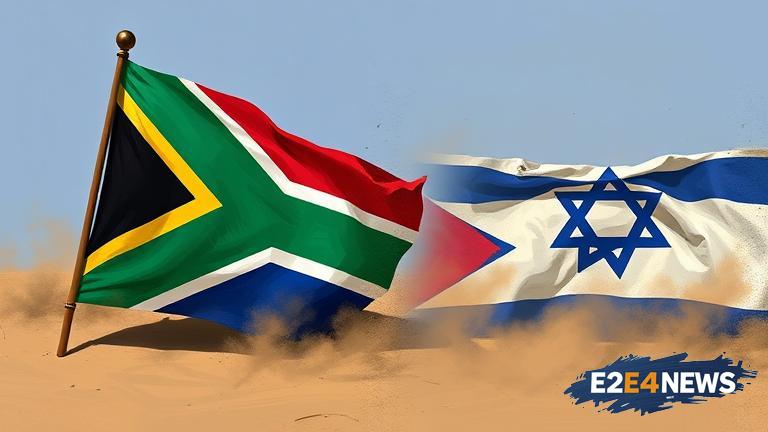South Africa has reaffirmed its commitment to holding Israel accountable for the alleged genocide in Gaza, with the country’s leaders expressing no regret over taking the matter to the International Court of Justice (ICJ). The decision to pursue legal action against Israel has been met with widespread support from various sectors of society, including human rights organizations and advocacy groups. The South African government has been vocal about its condemnation of Israel’s actions in Gaza, which have resulted in the loss of countless lives and widespread destruction. The ICJ case is seen as a crucial step towards achieving justice and accountability for the victims of the conflict. South Africa’s stance on the issue has been shaped by its own history of apartheid and oppression, with the country’s leaders drawing parallels between the two situations. The government has also been influenced by the strong anti-apartheid movement that existed in the country during the 1980s. The ICJ case is expected to be a lengthy and complex process, with both sides presenting their arguments and evidence. Israel has maintained that its actions in Gaza are justified as a means of self-defense, while South Africa and other critics argue that the actions constitute a form of genocide. The case has significant implications for international law and the global community’s response to human rights abuses. South Africa’s decision to take Israel to the ICJ has been praised by many as a brave and necessary step towards upholding human rights and international law. The country’s leaders have emphasized that the pursuit of justice is not limited to the ICJ case, but is part of a broader effort to promote peace and stability in the region. The South African government has also called on other countries to join them in condemning Israel’s actions and supporting the ICJ case. The case has sparked a heated debate about the role of international law in regulating the actions of states and the responsibility of governments to protect human rights. The ICJ’s ruling is expected to have far-reaching consequences, not only for Israel and South Africa but also for the global community. The case has highlighted the need for greater accountability and transparency in international relations, particularly in situations where human rights abuses are alleged. South Africa’s commitment to the ICJ case is seen as a testament to the country’s strong tradition of promoting human rights and social justice. The government has emphasized that the pursuit of justice is a moral imperative, and that the country will continue to advocate for the rights of marginalized and oppressed communities around the world. The ICJ case is also seen as an opportunity for South Africa to demonstrate its leadership on the global stage and to promote a more just and equitable international order. The country’s stance on the issue has been shaped by its membership in various international organizations, including the African Union and the United Nations. The South African government has also been influenced by the views of its citizens, who have overwhelmingly expressed support for the ICJ case. The case has sparked a national conversation about the importance of promoting human rights and social justice, both at home and abroad. As the ICJ case progresses, South Africa will continue to play a key role in promoting justice and accountability for the victims of the Gaza conflict.
